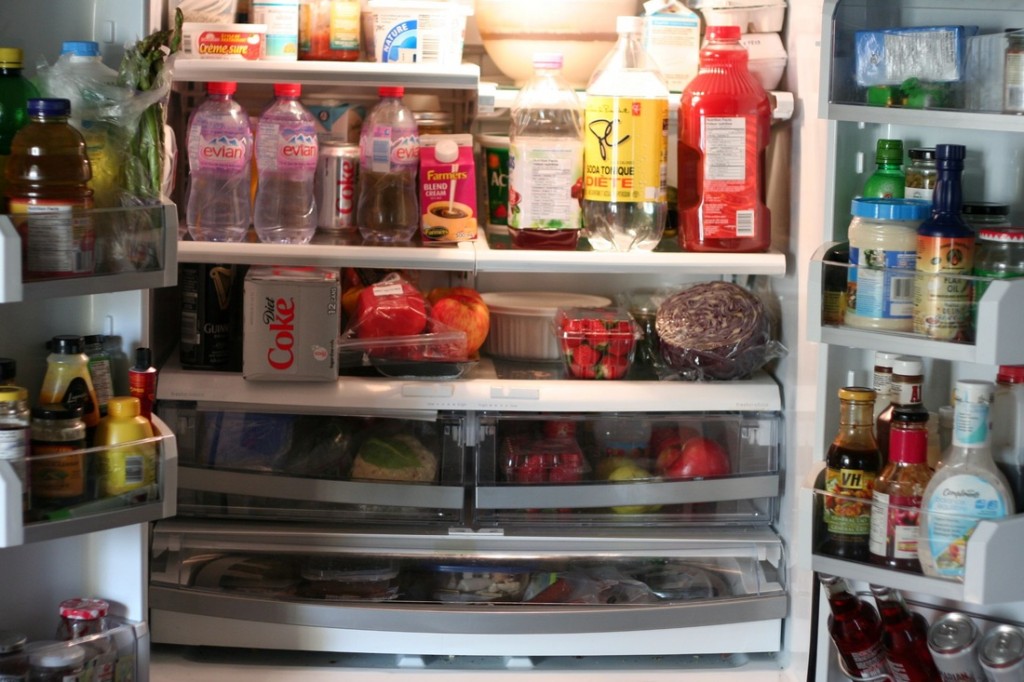Just like the popular saying goes, an apple does not fall far from the tree. Things you might be doing ignorantly today might be increasing your child’s risk of becoming overweight.
As a parent, you strive hard to teach your kids morals, kindness, manners, independence, and all these are very vital in a child’s life. But sometimes parents tend to forget one other important thing: the value of being physically active and healthy. The majority of a child’s attitudes about food and nutrition, their desire to be physically active and even their weight will be directly influenced by their parents.
Here are 4 things that you might be doing that might lead to an increase in the risk of your child developing obesity.
1. Your fridge is packed full of junk foods

You greatly increase your child’s risk of becoming obese if you as a parent aren’t eating healthy. You can’t pack junk food into your fridge and claim, “it’s for the adults only”, and yet expect your child to be a healthy eater. So the first step in reducing your child’s risk of being obese or having poor eating habits is to make sure that your fridge is always packed full of healthy foods.
2. You don’t encourage breakfast in your home

Research has shown that having breakfast, for children, is associated with better academic performance and a reduced risk of obesity. In fact, one piece of advice given to everyone trying to lose weight is to stop skipping breakfast.
Breakfast is undoubtedly the most important meal of the day. Throughout the night, you’ve been fasting and your metabolic rate has been lowered. So it’s important that you eat something in the morning to kick off your metabolism.
Secondly, your kids are at a higher risk of overeating during lunch when they don’t eat breakfast.
3. You spend most of your day in front of the television

A study showed that mothers who encouraged their kids to exercise and eat well (and actually lead by example) were more likely to succeed in getting their kids to engage in physical activities and adhere to healthy eating habits.
You can’t be a couch potato and expect your kids to be physically active. To some extent, what kids see their parents do is what they would most likely do.
4. You use food to reward or withhold on a regular basis

If you’re one of those parents that uses food as a reward for good behavior, or if they do well at school, then it’s high time you stop. Using food to reward a young child may set them up for developing a whole host of confusing concepts about eating.
Similarly, studies have shown that children whose parents deprived them of palatable foods on a regular basis were more likely to want the restricted food even more. For instance, if you tell a kid that they can’t have a cookie, and yet they see you eating one, they’re likely to overindulge on cookies once they have the opportunity.
So inasmuch as you’re trying to teach them to eat healthy, you shouldn’t totally deprive them of some tasty snacks once in a while.
Conclusion
The key to training your child right is leading by example. If you miss this key, then you’re probably wasting your time trying to teach that child how to do the right things, because they’ll only end up doing what they see you do.
WhatsApp number: +971565830067 (Just send us code 9233 and we will get back to you ASAP)
Contact Us: Click here to send us your details or fill in the form below.
You can get in touch with us 24/7 and one of our experts will not only give you a free consultation but also help you pick out an appropriate male or female personal trainer to meet your needs. One-on-one personal training lessons are available in Dubai, Abu Dhabi, Sharjah, Ajman and RAK.
______________________________________________________________